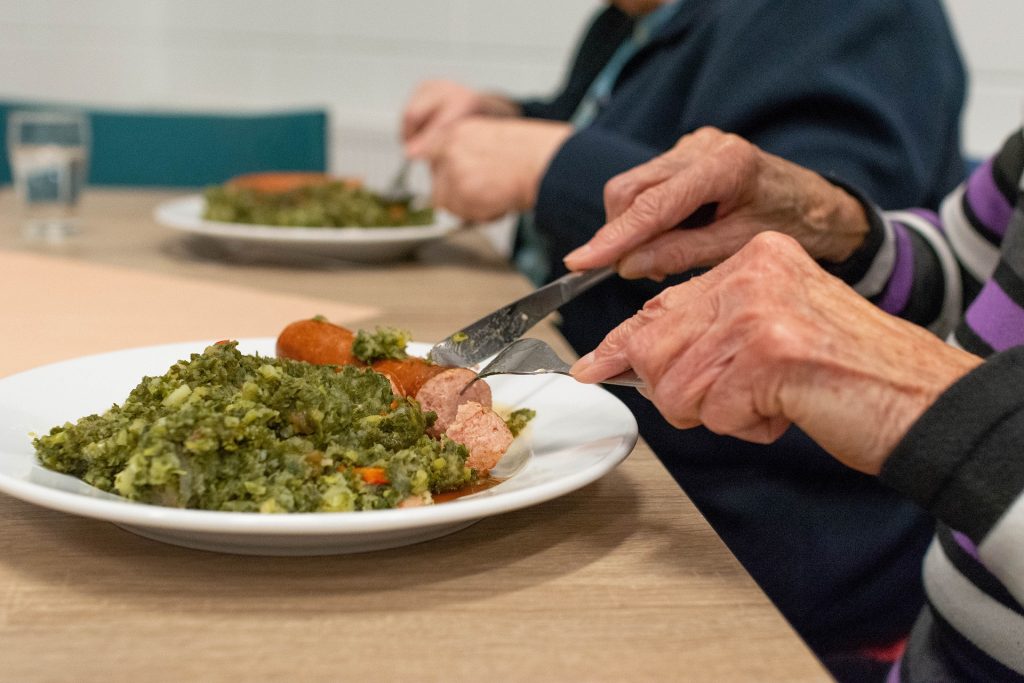As we gracefully age, the significance of maintaining proper nutrition becomes increasingly paramount. Nutrition plays a pivotal role in sustaining health, vitality, and overall well-being, especially for elders. The aging process brings about physiological changes that affect the body’s nutritional needs, making it imperative to adopt a thoughtful and balanced approach to diet. In this blog post, we will explore the crucial importance of proper nutrition for elders, delving into the various aspects that contribute to a healthier and more fulfilling life in the golden years.
Maintaining Physical Health
One of the primary reasons why proper nutrition is vital for elders is its direct impact on physical health. Aging often leads to changes in metabolism, muscle mass, and bone density. Adequate intake of essential nutrients, such as calcium, vitamin D, and protein, becomes critical to counteract these changes. A well-balanced diet helps in preventing or managing chronic conditions like osteoporosis, arthritis, and cardiovascular diseases, contributing to a more active and mobile lifestyle.
Boosting Immune Function
Aging is associated with a natural decline in immune function, making seniors more susceptible to infections and illnesses. Proper nutrition plays a pivotal role in fortifying the immune system, providing the body with the necessary nutrients to fend off pathogens. A diet rich in vitamins, minerals, and antioxidants supports the immune response, reducing the risk of infections and promoting a quicker recovery when health challenges arise.
Cognitive Health and Mental Well-being
Nutrition isn’t just vital for the body; it’s equally crucial for maintaining cognitive function and mental well-being. Research suggests a strong connection between diet and brain health, with certain nutrients playing a key role in preventing cognitive decline and reducing the risk of neurodegenerative diseases like Alzheimer’s. Omega-3 fatty acids, antioxidants, and vitamins B6 and B12 are known to support brain health, contributing to better memory, concentration, and overall mental acuity.

Managing Chronic Conditions
Elders often contend with various chronic conditions such as diabetes, hypertension, and heart disease. A well-managed diet can be instrumental in controlling these conditions and preventing their complications. For example, a diet low in sodium, saturated fats, and added sugars can help regulate blood pressure and reduce the risk of cardiovascular events. Similarly, a balanced approach to carbohydrates and regular monitoring of blood sugar levels are crucial for managing diabetes effectively.
Preserving Muscle Mass and Strength
Sarcopenia, the age-related loss of muscle mass and strength, is a common concern for seniors. Proper nutrition, especially a sufficient intake of high-quality protein, becomes essential to combat this phenomenon. Adequate protein intake supports muscle maintenance and repair, helping elders maintain their independence and mobility. Combining protein with regular physical activity can have a synergistic effect, promoting muscle health and preventing frailty.
Enhancing Digestive Health
Aging can bring about changes in digestive function, leading to issues such as constipation, indigestion, and nutrient malabsorption. A diet rich in fiber, probiotics, and hydration is crucial for maintaining digestive health. Fiber promotes regular bowel movements, while probiotics contribute to a healthy gut microbiome, aiding in nutrient absorption and overall digestive well-being.
Improving Quality of Life
Proper nutrition is not just about preventing illness; it also significantly contributes to an improved quality of life for elders. A well-balanced diet provides the energy needed for daily activities, enhances mood, and supports emotional well-being. Seniors who prioritize nutrition often experience a higher level of vitality, enabling them to engage in social activities, pursue hobbies, and maintain a fulfilling lifestyle.
In conclusion, the importance of proper nutrition for elders cannot be overstated. As we age, our nutritional needs evolve, and adopting a mindful approach to diet becomes imperative for maintaining physical health, supporting immune function, preserving cognitive health, and managing chronic conditions. Through a well-balanced and nutrient-dense diet, elders can not only prevent the onset of various health issues but also enhance their overall quality of life. Nourishing the body with wisdom and care is a powerful investment in the golden years, ensuring that elders can enjoy a life of vitality, independence, and fulfillment.







